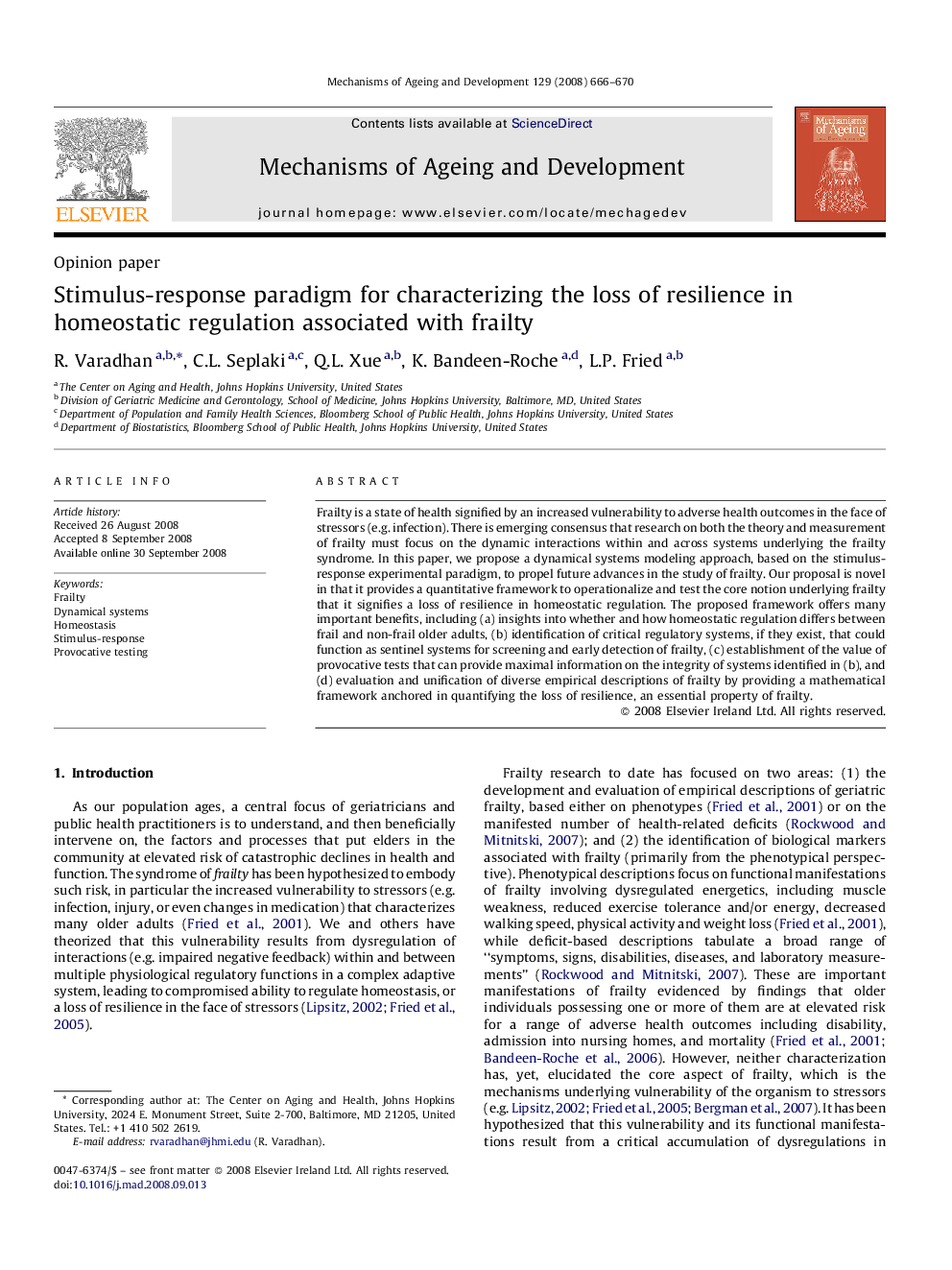| Article ID | Journal | Published Year | Pages | File Type |
|---|---|---|---|---|
| 1919850 | Mechanisms of Ageing and Development | 2008 | 5 Pages |
Frailty is a state of health signified by an increased vulnerability to adverse health outcomes in the face of stressors (e.g. infection). There is emerging consensus that research on both the theory and measurement of frailty must focus on the dynamic interactions within and across systems underlying the frailty syndrome. In this paper, we propose a dynamical systems modeling approach, based on the stimulus-response experimental paradigm, to propel future advances in the study of frailty. Our proposal is novel in that it provides a quantitative framework to operationalize and test the core notion underlying frailty that it signifies a loss of resilience in homeostatic regulation. The proposed framework offers many important benefits, including (a) insights into whether and how homeostatic regulation differs between frail and non-frail older adults, (b) identification of critical regulatory systems, if they exist, that could function as sentinel systems for screening and early detection of frailty, (c) establishment of the value of provocative tests that can provide maximal information on the integrity of systems identified in (b), and (d) evaluation and unification of diverse empirical descriptions of frailty by providing a mathematical framework anchored in quantifying the loss of resilience, an essential property of frailty.
